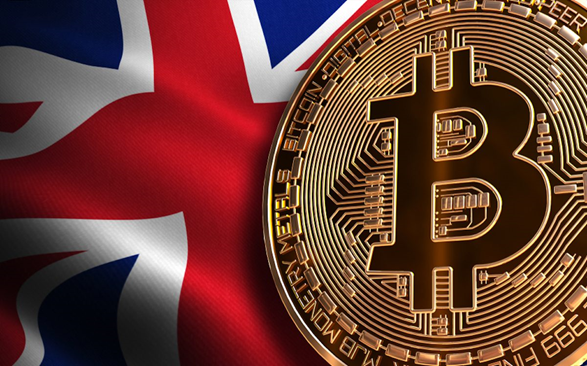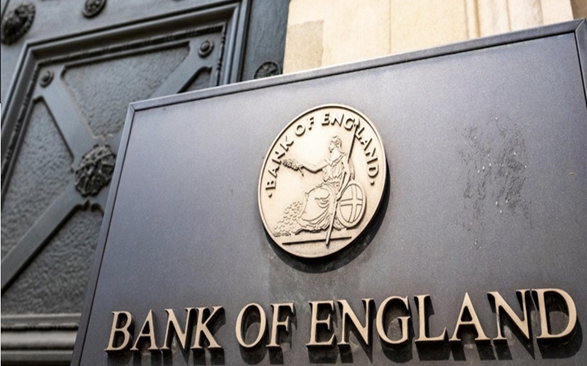By Jude Ayua
The United Kingdom (UK) Parliament plans to recognize bitcoin and other digital assets as personal property. On 11 September 2024, a bill titled Property (Digital Assets etc) Bill was proposed to the House of Lords. The relevant provision of the Bill reads:
A thing (…that is digital or electronic in nature) is not prevented from being the object of personal property rights merely because it is neither— (a) a thing in possession, nor (b) a thing in action[.]
In its Explanatory Notes to the Bill, the Ministry of Justice explained the above provision means digital assets such as bitcoin and other cryptocurrencies can be conferred with property rights. This is despite the fact such assets do not fit into the two categories of personal property traditionally recognized under the law of England and Wales. The two categories are “in possession”—tangible things, and “in action”—property rights that can only be claimed through a court action. The Bill is sequel to the recommendations of the Law Commission for England and Wales that “a thing will not be deprived of legal status … of personal property rights” because it does not fit into the traditional categories.
Notably, the House of Lords ensured the Bill’s compliance with the Human Rights Act 1998: “In my view the provisions of the Property (Digital Assets etc) Bill [HL] are compatible with the Convention rights,” Lord Ponsonby of Shulbrede stated.
It is important to note that the proposed Bill applies to England and Wales only and not to the entire UK.
Policy and legal backgrounds to the Bill
In 2020, the Ministry of Justice consulted the Law Commission to review the current law and consider whether “crypto-tokens and other digital assets” could be characterized as personal property in England and Wales. Personal property rights are important for several reasons including the following:
- To determine cases of bankruptcy or insolvency;
- To determine claims in cases of interference with property rights;
- For legal rules concerning succession;
- For the proper characterisation of legal relationships such as custody, collateral arrangements, and trusts.
The Ministry of Justice recognized that “digital assets are increasingly important to modern society and the contemporary economy.” They are used for various purposes including as a store of value and as a means of payment. From its Explanatory Notes, the Ministry of Justice demonstrated its sound understanding of digital assets and the technology behind it. It is against this backdrop, and considering the importance of property rights, that the Ministry sought to recognize digital assets as personal property to confer them the applicable rights.
The Law Commission concluded its review of the current law and found that property rights relate to certain types of digital assets. The Commission also noted that such digital assets do not easily fit within the traditionally-recognised categories of personal property. The Commission recommended that this should not prevent digital assets from being recognised as property, but that they should be regarded under a separate category of personal property.
Read also: UK Trader charged for operating illegal crypto ATM.
Regulatory implications of the Bill
The Property (Digital Assets etc) Bill is a major reform in Britain’s legal history. It is the first time that digital assets including cryptocurrency, non-fungible tokens, and carbon credits will be considered as personal property under British law. The implications of the Bill include:
- Legal protection for digital assets owners and firms
When passed into law, it will provide legal protection to digital assets owners and companies against fraud and scams. It will also help judges to determine complex cases concerning digital assets. Under the traditional property law of England and Wales, anything that is not tangible or which right cannot be enforced in court does not qualify as personal property. With the new law however, digital assets are now recognized as personal property which right an owner can enforce in court. All personal property rights will now apply to it including cases of bankruptcy or insolvency, claims in interference with objects of property rights, succession, characterisation of legal relationships such as custody, collateral arrangements, and trusts.
Notably, just a day after the Bill was introduced, the High Court of Justice, Business and Property Courts of England and Wales on 12 September ruled that Tether’s USDT stablecoin is a property. Judge Richard Farnhill noted that: “USDT attract property rights under English law. It is neither a chose in action nor a chose in possession, but rather a distinct form of property not premised on an underlying legal right.”
- Britain as a leading crypto regulator
With the new law, Britain is positioning itself as a leading regulator in the digital assets industry. Britain’s Minister of Justice, Heidi Alexander, remarked that: “…legal services form a vital part of our economy, helping to drive forward growth and keep Britain at the heart of the international legal industry.” Alexander also expressed optimism that the Bill will ensure Britain maintains its position in the emerging global crypto market.
Finally, as a regulator, the Ministry of Justice believes it is ensuring the government keeps pace with technological advancements. “It is essential that the law keeps pace with evolving technologies and this legislation will mean that the sector can maintain its position as a global leader in [crypto assets] and bring clarity to complex property cases,” said Alexander.
- Opening the UK market to digital assets firms
The proposed Bill does not protect digital assets owners only, but also operators. Following the legal recognition of Tether’s USDT as property, the firm plans to improve its relations with regulators in the UK and other countries. Tether announced on 13 September that it hired Jesse Spiro as Head of Government Affairs “for leading policy and engagement efforts with lawmakers, regulators, and key stakeholders.” A friendly regulatory jurisdiction enables both local and international companies to thrive in the market. This is also beneficial to the jurisdiction, for example, in increasing its revenue.
The UK’s proposed Bill to recognize digital assets as personal property is a notable regulatory reform. Not only does it aim to protect digital assets owners by enabling them to enforce their rights as is applicable to traditionally recognized property rights under England and Wales law; it is also necessary to boost adoption and strengthen regulation. Regulators should continue to adopt approaches that prioritize consumer protection and create a thriving environment for innovative technologies.
Read also: Nigeria’s SEC issues ‘Approvals-in-Principle’ to digital assets exchange firms.
Discover more from Crypto Asset Buyer
Subscribe to get the latest posts sent to your email.





